Civil Liberties, Criminalizing Dissent, FBI Intrusion, Human Rights, Iraq War, Prosecution of the Bush Administration, Surveillance, Truth to Power
Podcast: Play in new window | Download
Updates:
—

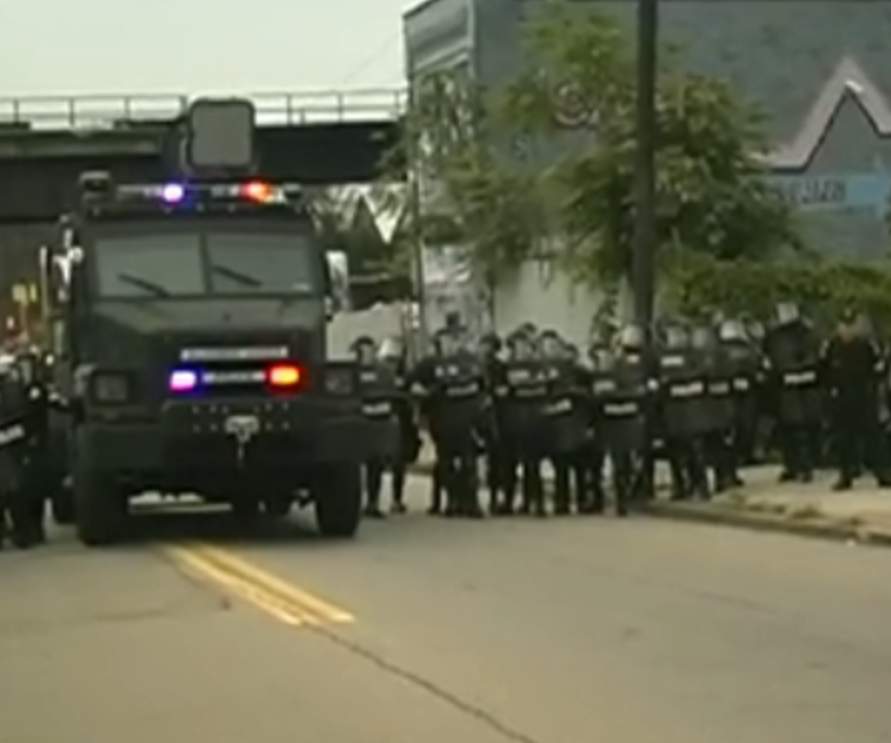
G20 Protest Permit Lawsuits : First Amendment Rights Challenge – Jules Lobel
G20 lawsuits filed to allow for peaceful demonstration challenged critical First Amendment rights. The right to demonstrate. Lawsuits filed on behalf of 6 activist groups including Code Pink, requested permits, such as permits to use public parks. The lawsuit brought against the city of Pittsburgh and the US Secret Service states protesters will engage in peaceful, constitutionally protected expressive activities. Jules Lobel, professor of law at the University of Pittsburgh had said to the Pittsburgh Post-Gazette, “When you have reports of huge numbers of police coming in, it suggests they plan to cordon off much of Pittsburgh and prevent meaningful protest.”
Jules Lobel:
- Oppressive environment in Pittsburgh once G20 was announced.
- Heavy police presence, roads are closed, 4 to 5 thousand police from out of Pittsburgh
- Classified as a National Security event, meaning the US Secret Service controls what’s going to happen
- Protest groups sent in applications for permits in July and August. The city, either did not respond or stall granted peaceful permits. Groups with long histories of non-violent protests, artists, ecumenical groups, environmental groups that wanted to set up a sustainability fair.
- Code Pink wanted to set up a tent city in the major park of downtown Pittsburgh. Bail Out The People
- We went to court because for a long time, the city would not give these groups a permit.
- In the lawsuit, we demanded that the city give a permit to the groups they’ve been negotiating with and allow the groups to use the park downtown for its protests.
- As soon as we filed suit the city negotiated much more reasonably, but still refused to grant Code Pink their permit to use the downtown park two days before G20. The court could not find a compelling reason why Code Pink could not use the park, and were granted a permit and had a wonderful tent city in the park.
- Its always a fight now to get permits, and the courts usually win when they defer to the invocation of national security.
- We also asked for overnight camping, far away from the convention center, again, no security concerns.
- The group feeds demonstrators, they grow organic food, they run a bus on organic fuel, an environmentally safe and sound operation. Here’s what happened:
- Police were suspicious, the first thing they did was give them a ticket and impounded their bus for parking the bus more than 12 inches from the curb. They got the bus back, paying 220.00.
- Some industrial artists rented out their lot to the group and allowed buses (which had kitchens in them) to park there. The next day 20 police in full riot gear, broke into the place and demanded to search without a warrant
- The artist who owns the lot after arguing with police, finally allowed the police to search, they found nothing.
- Then they sent out building inspectors to where the people were staying and threatened the artists to get rid of these people or face a 1000.00 a day fine. (These are people who are coming to give out free food)
- They then went to a black community, found an abandoned school and the owner said you can stay here.
- Before they could pull their buses in, a police and many police cars, stopped them and searched everyone and the buses again. Giving citations for parking wheel up on curb, and saying they needed a bus driver to drive commercial vehicle (their bus)
- They pressured the owner of the abandoned school, and finally they had to move again. They found a church, the police followed them there. The police tried to get the pastor to evict them, but he wouldn’t.
- A lawsuit was brought for pattern of harassment and the judge said you can sue for damages after the G20 Summit.
Guest – Jules Lobel, Vice President of the Center for Constitutional Rights and Professor of Law at the University of Pittsburgh. Through the U.S. Center for Constitutional Rights, Jules Lobel has litigated important issues regarding the application of international law in the U.S. courts. In the late 1980’s, he advised the Nicaraguan government on the development of its first democratic constitution, and has also advised the Burundi government on constitutional law issues.
—
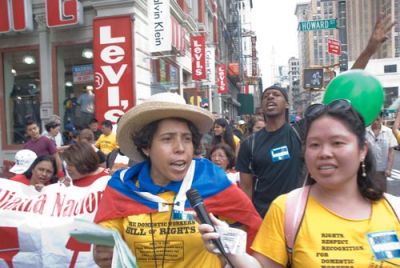

The New Domestic Order: Domestic Workers Unite
Domestic workers in New York City are pushing for the passage of their own “Bill of Rights” style protection. Most domestic workers are under paid in the United States, and now for many its especially difficult to make ends meet. New York’s domestic workers are calling for their own government bailout. The growing movement is made up mostly of women, it’s multi-ethnic, from countries such as the Philipines, Barbados, Trindad, Jamaica and Nepal. Some workers were abuse, others have been let go from their jobs without notice or proper compensation. The ranks of domestic-worker activists are filled with globalization’s refugees writes Lizzy Ratner, correspondent with the Nation Magazine.
EVENT: Damayan Migrant Workers Association is organizing a workshop on unemployment benefits. October 3, (1-4PM) Held at 53-22 Roosevelt Avenue, Woodside, Queens.
Lizzy Ratner / Linda Abad:
- Linda Abad: Member of the Damayan Migrant Workers Association working with Domestic Workers Alliance and Domestic Workers United campaigning for the passage of the New York Bill of Rights.
- New York Bill of Rights, fair labor standards, recognition, and win respect and dignity for the work force for women and some men who work in the homes of American families.
- There are 200 thousand domestic workers in New York City and about 15 percent are Filipino domestic workers like me. I’m a part-time housekeeper for a couple on the West Side
- I was a government employee in the Philippines, I had a home and 2 children. Income was too low to support family. My first job in the U.S. I worked for a family with 3 children in a big house. I started at 7AM and ended at 9PM. It was a big home, I had to take care of children, cook meals. I was getting 225.00 a week.
- When you’re working in the privacy of homes, you do not have a network, organization.
- Domestic Workers Bill of Rights, passed the assembly now, not the Senate.
- Most domestic workers don’t know that under New York law, after working 44 hours, you get time and a half
- Nine out of 10 domestic workers do not get health insurance, we really need it. We’re exposed to sick children, hazardous cleaning chemicals.
- The inclusion bill in the New York State assembly does not have health coverage. Many domestic workers work off the books. Domestic Workers United large group of Caribbean and Latina domestic workers.
- Lizzy Ratner: I was lucky enough to accompany (as a journalist) a large, large group of domestic workers and allies to Albany in Spring 2008. What I saw inspired me and much of what I learned horrified me. This was the fourth year of pushing for the Domestic Workers Bill of Rights. If you want rights for domestic workers, you have to organize and begin to change the laws.
- There was a sense of rebellious exuberance, defiance. Led by women, by women of color, by immigrants, documented and undocumented. Domestic workers have organized in California, Texas, Seattle, Miami, Maryland and New York
- The United States has come a long way in creating a civilized country, but somehow it’s difficult for lawmakers to see the righteousness of giving dignity and fair standard to this labor force.
- September 29, another trip to Albany to put pressure on the New York State Senate
Guest – Lizzy Ratner, journalist/correspondent with the Nation Magazine. Linda Abad, domestic worker and organizer for the Damayan Migrant Workers Association.
——————————————————————–
Afghanistan War, Civil Liberties, FBI Intrusion, Human Rights, Iraq War, Supreme Court, Surveillance, Targeting Muslims, Truth to Power, War Resister
Podcast: Play in new window | Download
New Time: Law and Disorder Broadcasts at 9AM on WBAI Listen here
Updates:
- 9-11 Anniversary/ Patriot Act / AUMF / Preventive Detention /Surveillance
- North Carolina terrorists / Consequences of cooperating with FBI
- Spanish prosecution update / Change in universal jurisdiction law / Trying to narrow law at behest of Israelis and Chinese
—–


Rethinking Afghanistan
Last week, Defense Secretary Robert Gates affirmed the US miltary commitment in Afghanistan, as thousands of additional troops are deployed. To give us a perspective we are joined by Norman Soloman, executive director of the Institute for Public Accuracy. Solomon is also the author of “War Made Easy: How Presidents and Pundits Keep Spinning Us to Death.” and has written several articles about his experiences in Afghanistan. Solomon has returned from a visit to Kabul in late August. His articles have detailed the war torn landscapes, stunning civilian casualties and the desperate living conditions of Afghani children. Previous Law and Disorder Shows on Afghanistan
Norman Solomon
- It’s worse than the mainline media would tell us.
- People who do go to Afghanistan, travel in a bubble, taken around by the Pentagon and learn very little, often not speaking to any Afghans who aren’t part of Karzai government.
- The intention of the Obama Administration is to wage war in Afghanistan, and humanitarian aid and assistance is an after thought.
- It’s in the foreground for PR, but the suffering is way beyond the number of people killed that’s being reported
- Afghans are outraged at the US killing civilians and outraged at the air war
- There are no Al-Qaeda in in Afghanistan, that’s been true for a while.
- This is a prescription for endless war, repetition compulsion.
- The agenda is less defensive and high blown, they have to do with geo-political positioning which is primary.
- Recommended Book: Descent Into Chaos: The United States and the Failure of Nation Building in Pakistan, Afghanistan and Central Asia.
- Afghanistan War is a humanitarian disaster that continues to unfold.
- The solution has to do with humanitarian and military activity being inverted.
Guest – Norman Solomon, executive director of the Institute for Public Accuracy. Solomon is also the author of “War Made Easy: How Presidents and Pundits Keep Spinning Us to Death.” and has written several articles about his experiences in Afghanistan. Solomon returned from a visit to Kabul in late August.
—–

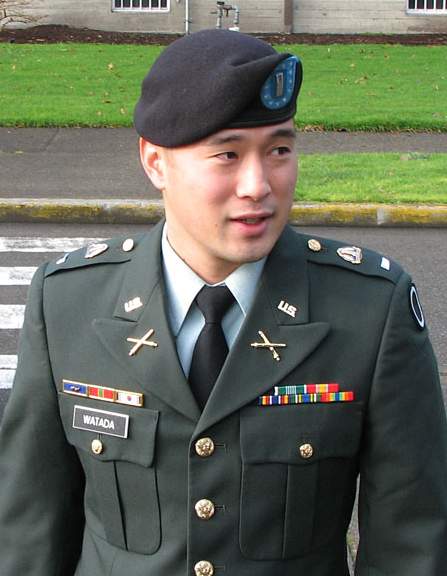

T.Bishop – photo by: Eric Thompson
The Will To Resist: Soldiers Who Refuse to Fight in Iraq and Afghanistan
The majority of the United States has opposed the continued occupation of Iraq and as the Pentagon decides to send more US troops to Afghanistan, there is a growing public distrust surrounding this recent escalation of war. Is there also a growing resistance among the ranks of US soldiers? The mainstream media has failed to report on the increasing number of soldiers taking a public stand and finding ingenious ways to express defiance. Author Dahr Jamail has compiled a report of dissent within the military in his recent book The Will To Resist: Soldiers Who Refuse to Fight in Iraq and Afghanistan. Watch Winter Soldier Coverage
Dahr Jamail:
- In the last decade, 50 thousand troops have gone AWOL. In 2007, a 42 percent increase of troops going AWOL in the US Army. Nearly 8 thousand troops each year going AWOL.
- Increase in troops contacting groups such as Courage To Resist and IVAW
- Soldiers resisting are often quickly processed through to shut them up
- Massive escalation in Afghanistan – more than 60 thousand troops. 131 thousand troops still in Iraq.
- McCrystal was advised that after the surge is done, add 45 thousand more troops.
- Lack of quality treatment for PTSD and Traumatic Brain Injury are not lost on the military, they know and understand.
- The Will To Resist focuses on active duty troops and veterans, the lead chapter is about resistance on the ground in Iraq.
- Search and avoid missions, IED lottery, we would find an open field, park there and call in every hour, saying yes we’re still looking for weapons caches.
- We often see a demoralized unit being sent in to an extremely bad situation, when it gets time to gear up, the troops are sitting there and the commander sees them and rather than risk media exposure, he’ll cancel the mission.
- A lot of people still in Canada.
- Soldiers are not informed that they can refuse an unlawful order and that they can apply for conscientious objector status. Two resisters from Fort Hood, SP4 Victor Augusto and Sgt Travis Bishop.
Guest- Dahr Jamail, he currently writes for the Inter Press Service, Le Monde Diplomatique, and many other outlets. His stories have also been published with The Nation, The Sunday Herald in Scotland, Al-Jazeera, the Guardian, Foreign Policy in Focus, and the Independent.
————————————————————————–
Afghanistan War, CIA Sponsored Terror, Civil Liberties, Guantanamo, Habeas Corpus, Human Rights, Iraq War, Military Tribunal, Prosecution of the Bush Administration, Targeting Muslims, Torture, Truth to Power
Podcast: Play in new window | Download
Updates:
- States increase opposition to money making traffic cameras: lawsuits.
——–

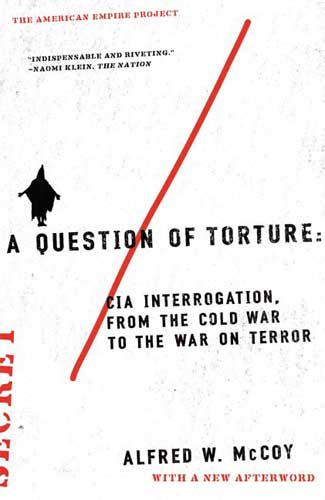

Alfred McCoy: CIA OIG Report PDF
Last month, marked the release of the CIA’s Office of Inspector General report investigating the use of “enhanced interrogation techniques” against detainees. The nearly fifty percent redacted report focused on incidents which exceeded the torture guidelines written in the Office of Legal Counsel torture memos. In the report, waterboarding a detainee 183 times was noted with only a concern, and highlighted abuses include faking the execution of a detainee by (quote) “contractors” without training and pointing an unloaded gun to a prisoners head. This report was not released with John Yoo’s torture memos. A move which could’ve helped prosecute torture architects such as Yoo and other Office of Legal Counsel lawyers who violated their professional ethical duties when they wrote memos claiming the administration’s proposed torture techniques were legal. Hear Al McCoy speak at Left Forum
Al McCoy:
- The chronology is important, the report is an investigation into excesses.
- The report also looks at the period ranging from 12 to 18 months when the alternative methods were authorized by President Bush – “enhanced interrogation techniques”
- For the first time in the history of the CIA, they were authorized to operate their own prisons, the so-called 8 black sites that operated from Thailand to Lithuania
- (Inspector General investigators) They opened up these secret sites and started collecting these detainees before they had clear guidelines and supervision
- Torture is seductive, erotic to the human mind, a process of which we know very little.
- Under US law section 23.40 of the Federal Code, psychological torture is legalized, there are only 4 things you can’t do under US law. One of them is death threats and death threats against a third party
- One of those hapless field agents that went over the top will take the fall. Yet, we know former Defense secretary authorized extraordinary techniques and his directions went down through the chain of command, it got all the way down to Abu Ghraib (prison photos link), where those soldiers were actually complying with those directives.
- The directives were illegal. You should be prosecuting the person who gave those orders at the top of the chain of command.
- In this case instead of having bad apples in military parlance, we’re going to have “rogue agents.”
- The stages of a country ruling with impunity – we’re not talking about a change of regime and then a tribunal, this is assuming continuity of government. (Clinton/Bush/Obama)
- It was necessary for our security: Dick Cheney’s latest argument – “so what, it made us safe.”
- We may have done these crimes but we now need to pull together and develop ourselves as a nation.
- The CIA had two distinguished cognitive scientists at Cornell University medical center in New York City, Doctors Henkel and Wolf. Ultimately they found the most devasting mode of torture is forced standing.
- Stand for hours motionless, sometimes days at a time, fluids flow to the legs, kidneys shut down, hallucinations begin, it’s incredibly painful.
- What they found back in the 1950s is you can make people do forced confessions, but its not very good in extracting objective information.
- Colin Powell’s former military aid, charged that Cheney in particular ordered this torture and extracted the false information – specifically with Ibn al-Shaykh al–Libi a prisoner whose false confession was used to link Saddam Hussein and Al-Queda.
- The best we can hope for is a Congressional Review, perhaps a Senate inquiry into the Bush years, that would look at the origin of the policy, the full nature of the policy, and whether or not it worked, not only gains but the costs. A serious, sober politically objective honest inquiry, apart from the prosecutions that may come from the Special prosecutor. Check out Progress Report’s – Accountability
- Within the American Psychological Association, these are not medical practicioners, they don’t take the Hippocratic Oath. It’s one branch of the medical community, the psychologists.
Guest – Professor of history at the University of Wisconsin-Madison. Author of “A Question of Torture: CIA Interrogation, From the Cold War to the War on Terror” and also “The Politics of Heroin: CIA Complicity in the Global Drug Trade.
———————————–


Labor Law Reform: Employee Free Choice Act
The Employee Free Choice Act is a proposed legislative bill that would speed up the process for employees to form a union. Under current labor law, workers can select union representation either through an election or something called card check, – a majority sign up. The US National Labor Relations Board will only certify a union as the exclusive representative of employees only if it is selected by a secret ballot NLRB election or if the employer agrees to a card check process. The catch is, that companies can refuse to bargain with a union chosen by a card check process even if 100 percent of employees want the union. Right now, the choice to use an election process or majority sign up is controlled by the companies.
The Employee Free Choice Act would change this process and take away employers’ ability to decide whether to use only the card check process or secret ballot election. This would make it much quicker process for employees who needed to form a union. This labor reform law has not been proposed without a fight, nearly 200 million is funding a misinformation campaign back by groups such as the Chamber of Commerce. Read Abby’s Public Eye article here.
Abby Scher:
- In the fifties, unions represented a third of the labor force, now they represent 12 percent.
- Employers have a lot of time to beat back the union. The Center for Responsive Politics found that the Chamber of Commerce spent 400 thousand dollars a day in opposition.
- The chamber of commerce is the largest lobby group in the country
- You can hear the rhetoric in their misinformation campaign. ..“EFCA is unAmerican, it takes away the secret ballot, unionists are thugs that will coerce workers into giving up their individual rights.”
- It’s harsh rhetoric from what you would consider a main stream group
- The national right to work committee since the fifties has flipped the script.
- Two phone calls have gotten attention, Bank of America and Citigroup . . .the center for Union Facts, – Rick Berman and Bernie Marcus talking about how EFCA would destroy capitalism and tried to motivate people on the call to give to Republican candidates
- Chamber of Commerce front group – Alliance to Save Main Street Jobs. In the misinformation campaign, the chamber of commerce is saying that EFCA will hurt small businesses, because everyone loves small businesses.
- They retained this woman to do a study about how EFCA would destroy 600 thousand jobs. This woman’s specialty is intellectual property, this is not her background, she is a gun for hire.
- It (her research) was easily debunked but you still hear people citing that study.
- Surprisingly, unions are growing. Big businesses are the threat against small businesses, not unions.
- I encourage everyone to subscribe to the AFL-CIO blog
- Unions help workers bargain for better wages, people have money to spend, buying power, quality of life.
Guest – Abby Scher, Editorial Director of the Public Eye. Check out Abby Scher on Making Contact’s Radio Feature
———————————————————-
CIA Sponsored Terror, Civil Liberties, Human Rights, Iraq War, Military Tribunal, Prosecution of the Bush Administration, Targeting Muslims, Torture, Truth to Power
Podcast: Play in new window | Download

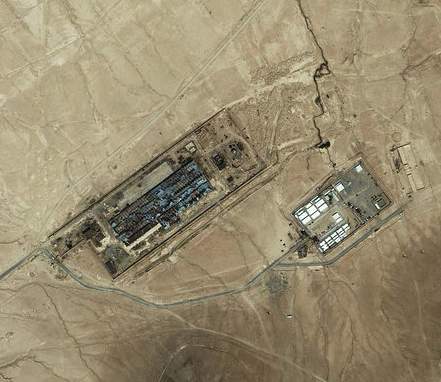
CIA OIG Report PDF
Attorney General Eric Holder appoints special Justice Department prosecutor John Durham to conduct a preliminary investigation into whether federal laws were violated in connection with the interrogation of certain detainees in U.S. custody. In this lively first half hour discussion, hosts Michael Ratner, Heidi Boghosian and Michael Smith discuss and detail why the investigation does not go after higher-ups within the US torture program, how tortured confessions are used to support war and that interrogators did not act alone.
- CIA OIG Report (PDF): Released because of requests by the ACLU / CCR / Amnesty International / Physicans For Human Rights
- Office of Legal Counsel Torture Memo Authors Should Be Prosecuted.
- Sham and Diversions: Special Prosecutor not “independent”
- 500 Year Setback: Doctors evaluating limits of torture
- Doctors, lawyers, officials, CIA, government agents involved.
- Torture report also reveal Cheney lies that intel was extracted from torture.
- CIA OIG Report Press Release
- Like a rat through a maze trying to find their way around the language
———
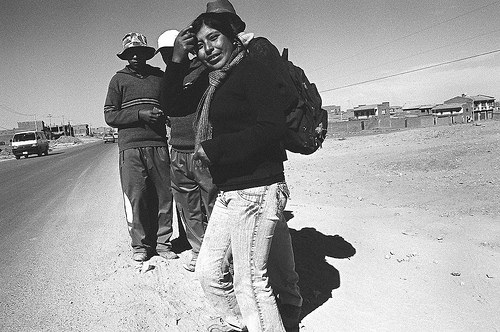
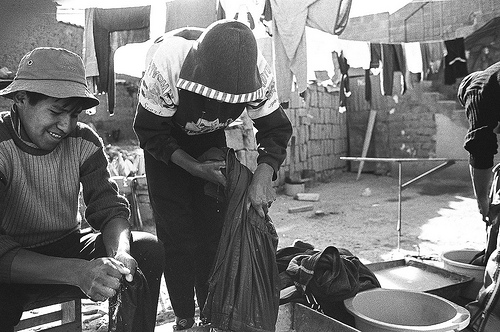
Jacob Ratner: Bolivia Debrief (photos courtesy of Jake Ratner)
We are very pleased to have with us Jake Ratner, our own Michael Ratner’s son, that is fresh off the plane from Bolivia. Jake is entering his final year at the University of Pennsylvania and shares with us some of his experiences from his three month stay with a Bolivian family. Experiences include, the Aymara indigenous culture, economics and socialism among the classes of people in Bolivia and comparisons to Cuban culture.
Jake Ratner:
- Working at a Bolivian Womens Prison
- Working with NGO helping women’s prison, teaching workshops, replacing faulty lighting etc
- San Pedro’s Mens Prison in La Paz: The prison is self functioning, the prisoners run small businesses and pay rent for their cells.
- That kind of autonomy was also in the women’s prison.
- When you go into the prison it’s like a small Bolivian village, there’s a fountain, kids running around.
- The spirit of rebellion is completely related to their culture, a culture of collective reasoning and resistance to the imposing power.
- Many women in prisons acted as drug mules. Drug laws in Bolivia, similar to Rockefeller drug laws in New York.
- El Alto, one of the poorest cities in Bolivia, extreme poverty. No plumbing. The eat a lot of freeze dried potatoes.
- Former Bolivian president Gonzalo Sánchez de Lozada Sánchez Bustamante made back room deals with Bolivia’s natural gas resources. Bolivians took to the streets, many were killed. A lawsuit is pending.
- El Alto, Bolivia is a “city” of roughly 800 thousand people that sits on a plateau above La Paz. It has been growing at an exponential rate and will soon supersede the population of La Paz
- Bolivia Social Security system: Bonos – payments to lower income families.
Guest – Jake Ratner, son of co-host Michael Ratner. He is in his last year at the University of Pennsylvania. Jake has traveled to and studied in Cuba. Check out Jake’s Flickr page here.
———-

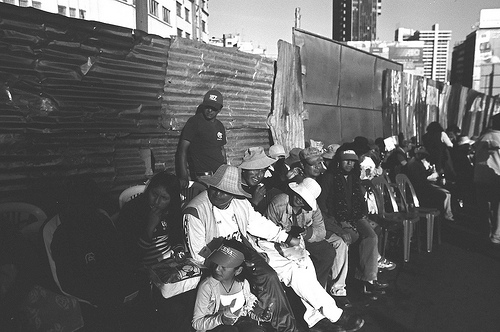
————————————————-
Afghanistan War, Civil Liberties, Criminalizing Dissent, Extraordinary Rendition, Guantanamo, Habeas Corpus, Human Rights, Iraq War, Military Tribunal, Targeting Muslims, Torture, Truth to Power
Podcast: Play in new window | Download
Host Updates:
Segments This Week:
—-



Cynthia McKinney and 20 Peace Activists Return From Israeli Prison
While hoping to deliver humanitarian supplies, a Free Gaza Delegation boat was stopped in International waters by the Israeli Navy earlier this month. Among the nearly 100 U.S. peace activists was former Congresswoman Cynthia McKinney and Irish peace activist and Nobel laureate Mairead Maguire. McKinney and others had been in custody since Tuesday of last week, but could have been released earlier if they signed a document admitting they violated Israel’s blockade. McKinney – “It’s quite unusual for anyone to get a glimpse inside an Israeli prison.”
Cynthia McKinney:
- There were 21 of us on the Free Gaza Boat, they were also bringing boats for Palestinian fisherman in Gaza.
- We embarked on our journey on the Spirit of Humanity boat. You can tell the folks put a lot of love in re-furbishing the boat, with the paint and making it a livable place for a 30 hour journey.
- That boat was destroyed by the Israeli military. They took some kind of huge magnetic item that held the boat suspended and shook it violently.
- It was an unusually calm day, it was absolutely beautiful. But it was 37 hours on the boat including the Israeli Navy intercept. It was nighttime, we were still in International waters and the Israelis threatened us.
- Remember I was on the Dignity when the Israelis rammed it.
- This time, they disabled the GPS, they tried to provide an escort to push us into Israeli waters.
- That tactic didn’t work. They also utilized, something I haven’t seen before, a “wave making machine,” because they shook us up and down.
- The GPS was turned off, communications were disrupted ( small EMP weapon?) I think they were trying to get us into Israeli waters, to make it look like we were off course.
- That did not happen, and they regrouped, and waited for us to enter Gaza territorial waters. That’s when these four speed boats came very quickly. Eight soldiers dressed like ninjas with the ski-mask, they commandeered the boat. Ejected the captain, and took over the steering.
- They put into one room on the boat, told us to sit down and shut up. We were forced to leave the boat with our hands in the air, some were handcuffed.
- The Israeli soldiers were rough with Maguier, she saw them take down one of the women, and she protested, and the soldiers roughed her up with bad language, it was a scene, and the men came to her rescue and those men got handcuffed.
- We got a full body search, we were held by the military for several hours, they transferred us to a detention facility, then to a full prison.Romley Prison. We were mixed in with the prison population. It was amazing, where we were there were young women of African and Asian descent.
- The Israelis actively blocked our effort to meet with our attorneys. We were deported from a country we didn’t intend to enter. The Free Gaza Movement has no intention of stopping.
Guest – former United States Representative and was the 2008 Green Party nominee for President of the United States. McKinney has served as a Democrat in the U.S. House of Representatives from 1993–2003 and 2005–2007, first representing Georgia’s 11th Congressional District and then Georgia’s 4th Congressional District. She is the first African-American woman to have represented Georgia in the House.
—–



Private Contractors in Afghanistan / Pakistan
Since President Obama announced the strategy for Afghanistan and Pakistan in late March of this year, news of troop deployment, drone attacks, and the killing of innocent Afghani and Pakistani civilians is heard nearly every week. Private contractors, mercenaries and the war profiteers in the region rarely make headlines however. One study has concluded that private contractors and mercenaries outnumber US soldiers. Check out – Outsourcing Intelligence in Iraq by Amnesty International and Pratap Chatterjee.
Pratap Chatterjee:
- President Obama has inherited long term contracts in Iraq and Afghanistan, 5-10 year contracts.
- If canceled (contracts) the system will shutdown. For every soldier in Iraq there is a contractor, for every soldier in Afghanistan, there are 2 contractors
- A lot of these people are cooks, janitors, builders, mostly from India, Pakistan, Sri Lanka, Phillipines, Egypt, Bosnia. They do the dull and dirty work nobody else wants to do.
- There’s no draft, so in a volunteer army, the US employs Indians/Bangladeshis for 300 dollars a month, cooking, cleaning. You have contract interrogator types who are making 250 thousand a year.
- There are now 15 thousand prisoners in each country, Iraq, Afghanistan.
- When US goes to interrogate these prisoners, they need translators.
- L3 which is based in New York City, bought up Titan. Titan. under L3 subcontracts interrogators.
- Titan is gone now (by name, same people involved) , but there’s a new company set up by Spider Marx, the guy in charge of intelligence during the invasion of Iraq. Global Linguist Solutions with Dyncorp.
- Contracts are designed to maximize profits. Company such as L3 is paid for 7000 translators, but penalized for having only 6000. 1000 unqualified translators are brought in to war zones.
- Interagency Roundtable Standards
Guest – Pratap Chatterjee, he’s recently returned from Afghanistan. Pratap is a journalist and former executive director of Corpwatch, an Oakland based corporate accountability organization.
—–

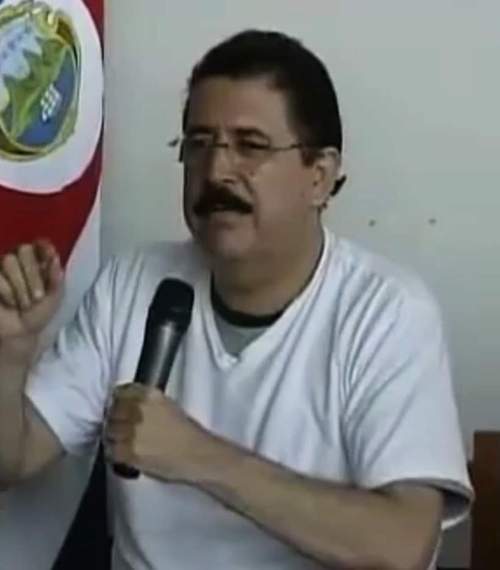

Honduran Coup Tries to Halt Advance of Latin American Left
Two weeks after the Honduran Coup ousted President Manuel Zelaya was prevented from returning to the country. Today we look deeper into the life of Manuel Zelaya, his background among the land_owning class, and his shift as a reform minded leader increasing wages for workers and teachers. Half way through his term Zelaya was inspired by changes in Venezuela, Bolivia and Cuba. He soon had the support of labor unions and social organizations that put him at odds with the corrupt social elite and drug mobsters. Today we talk with author Roger Burbach, about how Zelaya enraged the Honduran elite which led to up to the military coup.
Roger Burbach:
- The news in the main stream press about the coup was to stop Zelaya from re-election.
- Zelaya was not seeking re-election but a constituent assembly on the ballot to draft a new constitution for the country. Similar to Venezuela, Bolivia, and Ecuador.
- Either way, Zelaya could not run for re-election as the media and Honduran elites are portraying.
- The existing Honduran constitution was drafted in 1982, a very repressive constitution, back when John Negroponte was working with the death squads.
- US Sec of State, Hilliary Clinton doesn’t like Zelaya, she didn’t like him when she met him in early June.
- ALBA, an alternative free trade agreement that believes in solidarity measures and economic measures, led by Cuba, Venezuela, Ecuador and Bolivia.
- The US has the strongest military presence in Honduras, than any other Central American country. I would suggest that the US military intelligence knew about the impending coup and did nothing to stop it.
- Why does the US care about Honduras? Strategic military point in Central America, amid three radical governments now rising.
- New radical left leaders such as Chavez, Morales, Correia in Ecuador, Reformist governments of Brazil, Uraguay, maybe El Salvador. The US wants to drive a wedge in there, as with the coup Zelaya was aligned with the radical countries.
- The World Bank and the IMF have all suspended economic support except for the United States.
Guest – Roger Burbach, author of the Pinochet Affair and Director of the Center for the Study of the Americas based in Berkeley, California. Read more articles from Roger Burbach.
—————————————————————————–
Afghanistan War, Civil Liberties, Guantanamo, Habeas Corpus, Human Rights, Iraq War, Supreme Court, Surveillance, Targeting Muslims, Torture, Truth to Power
Podcast: Play in new window | Download
Host Updates:
Segments this week:
——-
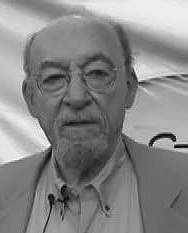


Peter Weiss : International Human Rights Law and the Royal Dutch Shell Settlement
Europe’s largest oil company Royal Dutch Shell settled a landmark lawsuit last week, agreeing to pay 15.5 million to avoid a trial over it’s alleged involvement in human rights violations in the Niger Delta. The case was brought by relatives of human rights and environmental activists killed in Nigeria who accused Shell of complicity in the 1995 executions of Nigerian writer and environmentalist Ken Saro Wiwa and eight others. Charges in the case include summary execution, crimes against humanity, torture, inhumane treatment, arbitrary arrest, wrongful death, assault and battery, and infliction of emotional distress. Attorney Peter Weiss explains how historic laws such as the Alien Tort Claim are used to hold multinational corporations accountable for human rights crimes.
Peter Weiss:
- They (Royal Dutch Shell) knew all along that they were complicit. Decades ago I was involved in the struggle against colonialism in Africa. What that settlement represented was a victory against neo-colonialism.
- I think we all hope at the Center for Constitutional Rights that this will send a signal to other companies.
- Peter Weiss and Rhonda Copeland were instrumental in beginning the first cases in which human rights violations, taking place in other countries could actually be litigated in the United States.
- Alien Tort Statute Claim: We first discovered that during the Mei Li massacre. It’s a one sentence law that goes back to the first judiciary act in the United States in 1789.
- It simply says, an alien shall have a right of action in district court for a violation of the law of nations. (as international law was called in the 18th century)
- Ten years later Amnesty International got in touch with CCR, saying we have this torturer in Paraguay. Which became known as Filartica – 1978 / 1980 was the decision. It set the stage for hundreds of cases.
- About 15 years ago, CCR applied that statute to the human rights crimes of corporations in foreign countries.
- We’ve had a few victories and one of them was the UNOCAL case, where UNOCAL was using slave labor. That case was settled. Now, the Wiwa case was settled.
- If you’re familiar with what corporations are doing around the world, you can imagine how many such cases can be brought.
- Royal Dutch Shell was actually paying these Nigerian soldiers that were committing these atrocities.
- The worst thing that they did was go to the Nigerian government and say we have to get rid of these trouble makers.
- Nigeria was under a corrupt dictatorship at the time.
- We’re not the only ones, the Center for Justice and Accountability out in California have victories against Salvadorian torturers
- Jerry Nadler had a hearing on the state’s secrets act and on the opening statement, he says people bring these suits and the government comes in and says state secrets, the suit can’t go forward. But there’s an international law says Nadler, that has to be a remedy for every right.
Guest – Peter Weiss, former Vice President, Center for Constitutional Rights and Vice President, of the International Association of Lawyers Against Nuclear Arms.
—–
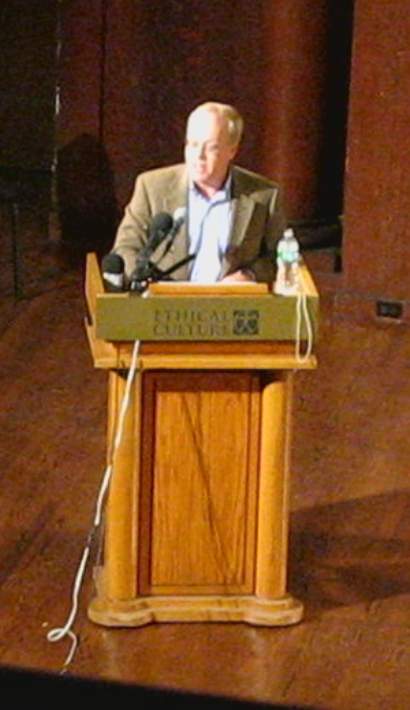
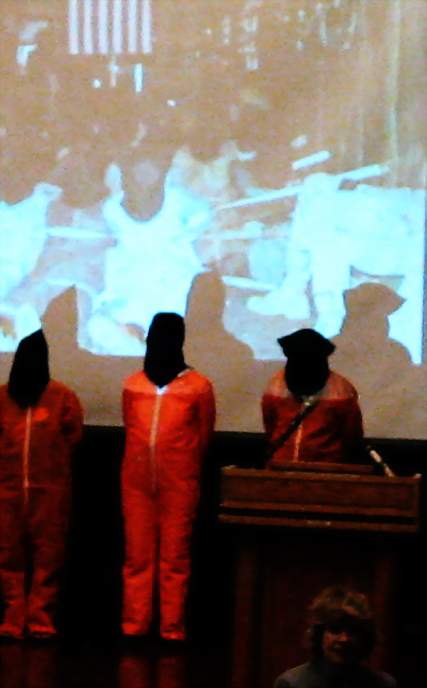

A Revolution Books Town Hall Meeting: TORTURE AND THE NEED FOR JUSTICE
We hear from Laura Flanders, journalist and host of GRITtv, and Chris Hedges, former New York Times Mideast bureau chief, author of many books specializing in American and Middle Eastern politics and society. He spent nearly two decades as a foreign correspondent in Central America, the Middle East, Africa and the Balkans. He was also the Middle East bureau chief for The New York Times. Chris Hedges’ new book, “Empire of Illusion: The End of Literacy and the Triumph of Spectacle,” will be out in July and can be preordered at your local bookstore.
Speakers :
Organized by Revolution Books / Libros Revolucion
—–
For WBAI Listeners
Men, Mobs and Law by Rebecca Hill
Men Mobs and Law is the title of Rebecca Hill’s new book that explores the complexities of protest movements, race, class and gender. Hill draws comparisons in two types of left protest campaigns, those that defend labor organizers from prosecution and the anti-lynching groups that seek to memorialize lynching victims. Hill says, both groups have influenced each other throughout history and she specifically connects the narratives and stories of the NAACP’s anti lynching work to the IWW’s labor defense campaigns.
Rebecca Hill’s treatment of these dramatic stories has been called “fresh, lively, richly detailed, and impassioned.”
Rebecca Hill:
- When I first started the book it was about martyrdom and the American Left and heroic politics. I’ll take these particular cases, John Brown, Haymarket etc.
- In the research I found that this other problem that there is no law enforcement and the source of terror that black activists were dealing with was extra-legal. . . . and their anti-lynching activism that started in the 60s – and I then went back to Ida B Wells, Dubois – 1887-1890s
- Ida B Wells talking about how dangerous passion is. This is a problem in leftest activism in general. It goes to the big questions of political theory and rationale, the role of emotions, questions of what is the meaning of popular action,
- I didn’t want to condemn either side, the anti lynching movement strategy or and the socialist left defense organizing, because they both came out of experiences that informed their politics.
- If you’re facing terroristic mobs, you’re going to respond with a strategy. The anarchists and socialists movement response spoke to the lynching and their response was in inadequate – “rise up in self defense.”
- If you lived in the post reconstructive South, rising up in self defense was not realistic without legal protection.
- What came out of the Haymarket movement in the 1880s was the idea that the key element of solidarity in a labor movement is when somebody is arrested, or victimized as a result of organizing, its the membership that can save them. Not the law. The law is a tool, it’s not enough perhaps.
- The courts are structured by the ruling class, they’re stacked against the worker who is in court. They didn’t want the court room take away from the radicalism of the movement.
- Elizabeth Gurley Flynn – defense expert in IWW trials and Sacco Vanzetti case. Anarchists connected to Sacho and Vanzetti case didn’t want structure and organizing
- I was very active in the Mumia Abu Jamal campaign, you see the greater successes in the popular defense organizing it’s not based on the legal strategy, its when is the movement stronger. You see more victories in the thirties because the labor movement was big and the consensus was moving to the left during the New Deal
- John Brown’s defense is close to the fugitive slave rescues which were anti-court . John Brown’s notion that the courts are wrong and should answer to a higher power, not the current law of slavery. John Brown attempted to make available weapons for slaves to take up arms. See the book John Brown Mysteries
- I don’t really think of John Brown as a religious zealot, I think he really believed in popular organizing and popular activism.
Guest – Rebecca Hill, author of Men Mobs and Law.
























